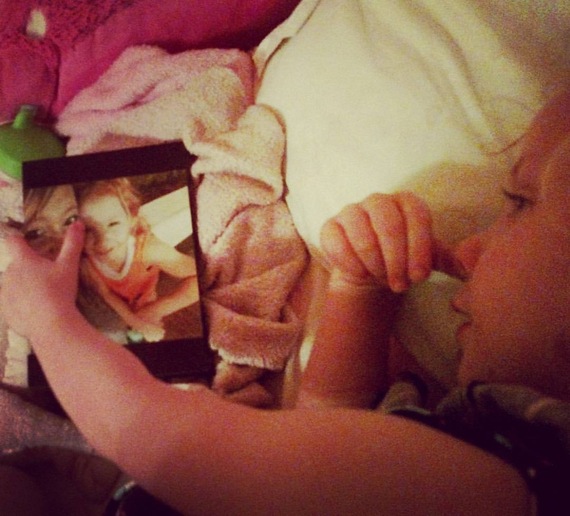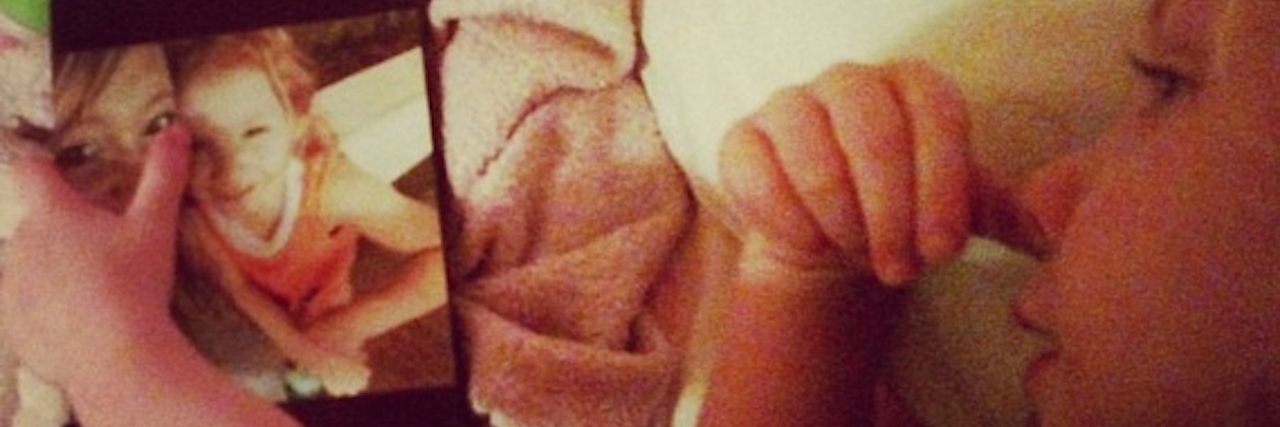A Child Doesn't Need Words to Say 'I Love You'
Another Mother’s Day has come and gone. My children have long-since drifted off to sleep, and I’m quietly reflecting on the many ways they brought joy to me today. Some of this joy was the result of intentional acts of kindness, including a beautiful bracelet made by my oldest daughter, and a heartwarming “All About Mom” book, filled in by my kindergarten-aged son. These were gifts that my children made in advance and gave to me with great anticipation. They knew it was to be a special day for me. From the moment their feet hit the floor, they were active participants on a mission to make Mom feel extra-loved! Their mission was a great success, and I took every opportunity I had to let them know it.
My youngest daughter, on the other hand, didn’t appear to understand it was Mother’s Day. She’s 3 years old and on the autism spectrum. To her, it was probably just another day. Still, she, too, managed to make me feel loved beyond measure.
There are so many ways in which every child on the autism spectrum, verbal or nonverbal, is capable of saying “I love you.” What they need is for us to realize that we can listen with more than just our ears!
Many moms of other children with autism have opened up to me and have shared their stories. I’ve heard the heartbreak in their words as they have described how it feels to know they may never hear the voices of their nonverbal children. It’s humbling, to say the least. I’m incredibly grateful that I have heard my little girl’s voice say, “Goodnight! I love you!” From those mothers, I have learned that children with autism can express love in a multitude of ways, often without ever uttering a word.
When a child with autism has a great day, socially, yet breaks down the moment she is in the safety of her own home, she may be saying, “I love you enough to let you see this. I feel safe with you.”
When that same child clings to you and sobs over the most seemingly trivial change in routine, she may be showing that she recognizes security in you. She isn’t just being difficult or finicky. She can be saying, “I love you, and I’m not letting go, because right now, you’re the only one who I know can make it better.”
When a child with autism smacks you in the face as you pretend to cry during play, he isn’t being cruel. He can be expressing distress over seeing you distraught. He can be saying, “I love you, and I can’t stand to see you sad, Mommy.”
Yes, my daughter can speak, but she also does each of the things mentioned above. Instead of being hurt by her behavior, I’ve learned that I need to look beyond the surface and listen to what she’s telling me with her actions. They’re all rooted in love. This is not always easy to do. I’m far from perfect and often become frustrated during these outbursts, but I am learning to hear the things she’s not saying in times like these.
On Mother’s Day, her actions said “I love you” incrementally louder than any words she’s ever spoken. I put a different spin on Mother’s Day, this year. Since my children are what make me me “Mommy,” I gave each of them a gift — a small wooden photo of them with me. At bedtime, I found my youngest daughter in her bed, snuggling with hers.
In so many situations, you can feel an overwhelming expression of love without having to hear it expressed verbally. There is no greater feeling than looking at my little girl and knowing that I am loved and adored, just for being me.

Follow this journey on drivingthestrugglebus.

